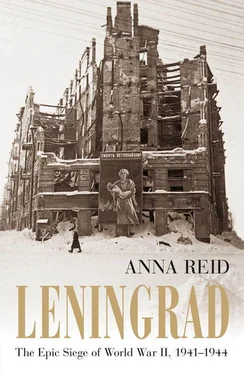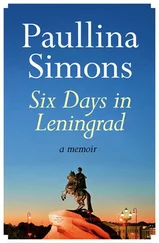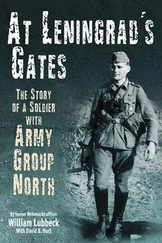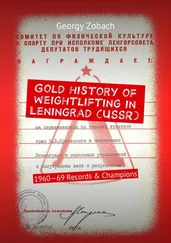For many Russians, this is hard to swallow. There is not much to celebrate in Russia’s twentieth-century history, and the victory over Nazi Germany is a justified source of pride and patriotism. When Vladimir Putin, like Brezhnev before him, lays on lavish wartime anniversary celebrations, he finds a receptive audience. An element of tactful self-censorship also comes into play, because as well as flattering the regime the heroicised Brezhnevite version of the siege eased trauma for survivors. {8} 8 See Sergei Yarov, ‘Rasskazy o blokade: struktura, ritorika i stil’, Nestor , 6, 2003, p. 422.
It is hard—cruel even—to cast doubt on the doughty old woman kind enough to give an interview when she describes neighbours helping each other out, mothers sacrificing themselves for children, or good care in an evacuation hospital. She is not propagandising or myth-building, but has constructed a version of the past that is possible to live with. Paradoxically, public discussion of the blockade is likely to become franker once the last blokadniki have passed away.
The final point of retelling the story of the siege of Leningrad, though, is not to restore to view an overlooked atrocity, strip away Soviet propaganda or adjust the scorecards of the great dictators. It is, like all stories of humanity in extremis , to remind ourselves of what it is to be human, of the depths and heights of human behaviour. The siege’s most eloquent victims—the diarists whose voices form the core of this book—are easy to relate to. They are not faceless poor-world peasants but educated city-dwelling Europeans—writers, artists, university lecturers, librarians, museum curators, factory managers, bookkeepers, pensioners, housewives, students and schoolchildren; owners of best coats, gramophones, favourite novels, pet dogs—people, in short, much like ourselves. Some did turn out to be heroes, others to be selfish and callous, most to be a mixture of both. As a memoirist puts it of the Party representatives in her wartime military hospital, ‘There were good ones, bad ones, and the usual.’ Their own words are their best memorial.
Brockagh April 2010
PART 1
Invasion
June—September 1941
One might say that Leningrad is particularly well suited to catastrophes… That cold river, those menacing sunsets, that operatic, terrifying moon.
Anna Akhmatova

‘We will defend the city of Lenin’ (Vladimir Serov, 1941)
Drive sixty kilometres south-west of what used to be Leningrad and you come to what Russians call dacha country: a green, untilled landscape of small lakes, soft dirt roads, tall, rusty-barked ‘ship pines’ and weathered wooden summer houses with sagging verandas and glassed-in porches. On the Sunday morning of 22 June 1941 Dmitri Likhachev, a thirty-five-year-old scholar of medieval Russian literature, was sunbathing with his wife and daughters on the sand martin-busy banks of the River Oredezh:
The bank was steep, with a path leading along the top of it. One day, sitting on our beach, we overheard snatches of a terrifying conversation. Holidaymakers were walking along the path and talking about Kronshtadt being bombed, about some aeroplane or other. At first we thought they were reminiscing about the Finnish campaign of 1939, but their excited voices bothered us. When we returned to the dacha we were told that war had broken out.
At noon the Likhachevs gathered with other holidaymakers around an outdoor loudspeaker to listen to the formal announcement of war. The speaker was not Stalin, but the Commissar for Foreign Affairs, Vyacheslav Molotov. ‘Men and women, citizens of the Soviet Union’, he began. ‘At four o’clock this morning, without declaration of war, and without any claims being made on the Soviet Union, German troops attacked our country.’ The text struck a note of baffled injury—‘This attack has been made despite the existence of a non-aggression pact between the Soviet Union and Germany, a pact the terms of which were scrupulously observed by the Soviet Union’—before ending with the more rousing ‘Our cause is good. Our enemy will be smashed. Victory will be ours.’ When the broadcast was over ‘everyone was very gloomy and silent… After Hitler’s Blitzkrieg in Europe, no one expected anything good.’ {1} 1 Dmitry Likhachev, Reflections on the Russian Soul: A Memoir , p. 215.
All over Leningrad, quiet midsummer weekends were similarly violated. In her apartment in the city centre, near Potemkin’s Tauride Palace, Yelena Skryabina had risen early so as to get some typing done in time for an outing to the countryside. The sunshine, the cool morning air coming in at the windows, the sound of her nanny shushing her five-year-old son Yura outside the door, all combined to give her ‘a wonderful feeling of contentment and joy’. Her older son, fourteen-year-old Dima, had already left with a friend to see the fountains being switched on at the great baroque palace of Peterhof, out on the Finnish Gulf. At 9 a.m. her husband telephoned from his factory with a cryptic, agitated message to stay at home and turn on the radio. At noon, she and her mother listened to Molotov’s broadcast: ‘So this was it—war! Germany was already bombing Soviet cities. Molotov’s speech was halting, as though he were out of breath. His rallying, spirited appeals seemed out of place. And I suddenly realised that something ominous and oppressive loomed over us.’ When it was over she went outdoors, where she found crowds of people milling about the streets and elbowing their way into the shops, ‘buying up everything they could lay hands on’:
Many rushed to the banks to withdraw their savings. I was seized by the same panic, and hurried to withdraw the roubles listed in my bank book. But I was too late. The bank had run out of money. The payments had stopped. People clamoured, demanded. The June day blazed on unbearably. Someone fainted. Someone else swore vehemently. Not until evening did everything become somehow strangely still. {2} 2 Yelena Skrjabina, Siege and Survival: The Odyssey of a Leningrader , p. 3.
At eleven o’clock on the same morning Yuri Ryabinkin, a skinny fifteen-year-old with a pudding-bowl fringe above big dark eyes, set off along Sadovaya Street for a children’s chess competition in the gardens of the Pioneer (once the Anichkov) Palace next to the Anichkov Bridge. The policemen, he noticed, were carrying gasmasks and wearing red armbands—part, he assumed, of one of the usual civil defence exercises. He was setting out his chess pieces when he noticed a crowd gathering around a small boy standing nearby. ‘I listened and froze in horror. “At four o’clock this morning”, the boy was saying excitedly, “German bombers raided Kiev, Zhitomir, Sevastopol and somewhere else! Molotov spoke on the radio. Now we’re at war with Germany!” …My head span. I couldn’t think straight. But I played three games, and oddly enough, won all three. Then I drifted off home.’ After supper he wandered about the tense, stuffy streets, queuing for two and a half hours for a newspaper—‘interesting talk’ and ‘sceptical remarks’ ran through the line—until it was announced that there wouldn’t be any papers, but ‘some kind of official bulletin instead’. ‘The clock’, Ryabinkin wrote with adolescent portentousness in his diary later that evening, ‘says half past eleven. A serious battle is beginning, a clash between two antagonistic forces—socialism and fascism! The well-being of mankind depends on the outcome of this historic struggle.’ {3} 3 Ales Adamovich and Daniil Granin, A Book of the Blockade , p. 236.
Читать дальше












